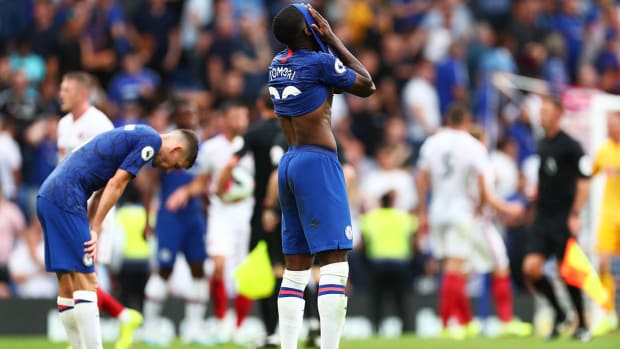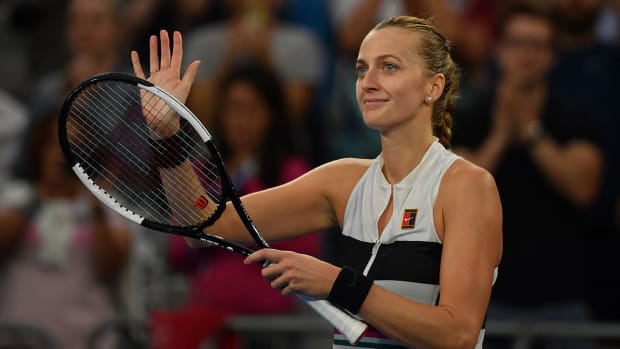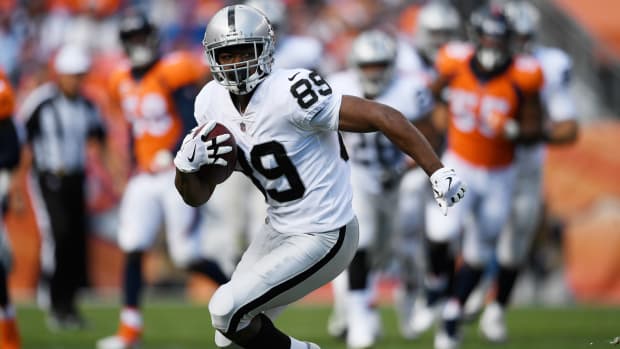Aussie 'Browndogg' among recruits in Kabaddi's expansion
AHMEDABAD, India (AP) He goes by the Twitter handle Browndogg-30x and he's a seasoned ex-pro in Australia's homegrown brand of football, the son of one of the more infamous players from that game.
Campbell Brown is making a mark on the Kabaddi World Cup in India, leading the Australian team despite his very recent recruitment to the traditional south Asian game.
''It's very unique, isn't it,'' the 33-year-old Brown said in an interview at the World Cup. ''I just think it's such an exciting sport, from the playing perspective and from viewers' as well.
''It's such a new sport to us. You see there's a few players in our team that have a professional football background, so we picked up the skill component of it pretty easily, but it's just the rules and the things like (that) which are the hard part. It has been a steep learning curve for the team in the first two games, but I think we are getting better and better with each minute we spend on the court. ''
Kabbadi is a contact sport that mixes tag and wrestling and developed over centuries on dusty courts in northern India. It's widely popular in India, Pakistan and Bangladesh, and usually played abroad by expats from those countries.
Organizers are trying to increase the sport's global appeal and have 12 national teams competing in the World Cup, including the United States, South Korea, Argentina, Poland, Kenya, Japan and Thailand. Pakistan's team was a late withdrawal from the tournament.
After three games, hot-favorite India was leading Group A from South Korea and England, having recovered from a shocking opening loss to the Koreans. Iran was in control of Group B with an unbeaten run. The top two teams in each group advance to the semifinals.
The basic rules of kabaddi are simple, but the finer arts of the game have evolved over a long time. It is a game between two teams of seven players. The teams take turns to send a raider, or attacker, into the rival half of the field to gain points by trying to touch opponents, who then go out of the game. All the while, the raider chants the word `kabaddi' until running out of breath.
Players from the defending team try either to evade the touch or get into a grapple to stop the raider returning to his or her half.
Brown, who followed in the footsteps of his rugged and controversial father, Mal Brown, and played in the top-flight competition in Australian Rules football, knows how tricky learning the rules of a unique, regional game can be.
But he's still struggling to come to terms with the intricacies of Kabaddi.
''The saying `kabbadi' the whole the time you raid, it's quite funny,'' he said, admitting he forgot to do a few times in Australia's opening loss to England. ''The referees were a bit kind on the Australian team and didn't penalize us for it but, when you've got seven players coming at you, raiding and you try to touch them sometimes you just forget to say `kabbadi' - that's probably the funny part of it.''
England captain Someshwar Kalia also has players who're learning on the go, and having to remember one of the keys is the yoga-like chanting.
''This is actually a very unique aspect of the sport,'' he said, adding that it can be difficult combing the physical nature of the game with the finer points. ''That's the thing that threw a lot people off.''
For the South Koreans, it's the close connection of the defending team - a chain-like formation - that seemed to be most unique part of the game.
''The most unusual thing for me was that we have to hold our hands while defending,'' South Korea captain Dong Ju Hong said during a recent training session. ''Two males holding hands was a little odd for me.''
After cricket, it's one of the most popular sports in India, and the pressure is firmly on the home team at the sixth World Cup.
''It is very important to win this World Cup as it's taking place in our country, and so far we have never lost,'' India player Deepak Hudda said. ''We won't settle it without the Cup. It's very important us to win for the prestige of the country.''




